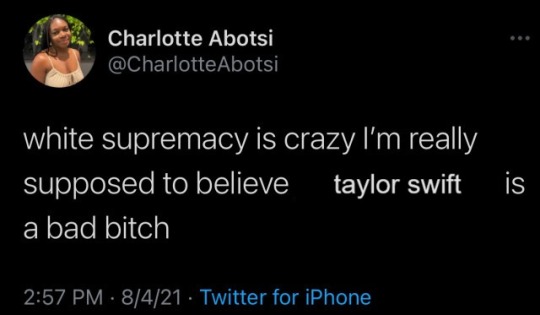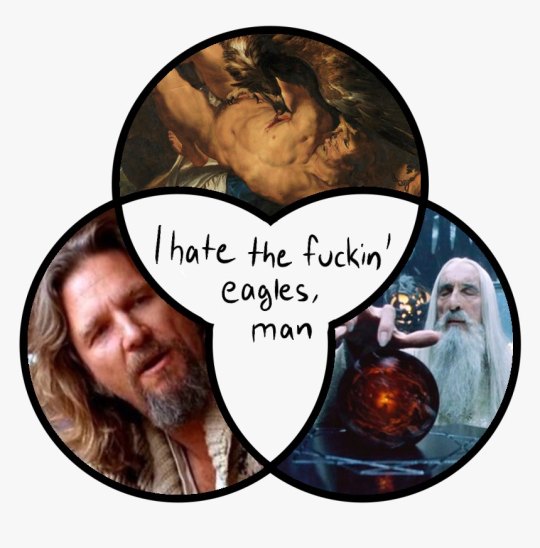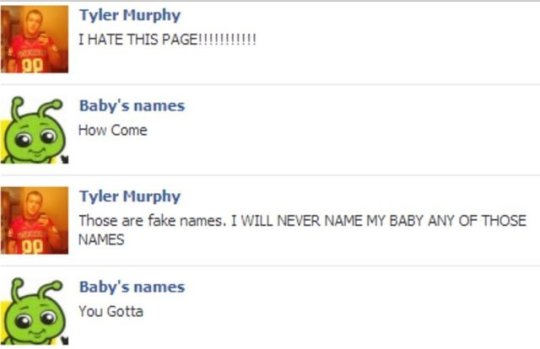28 | he/him | fighting game enthusiast | serial distro-hopper
Don't wanna be here? Send us removal request.
Text
the whole "lipstick on a pig" thing makes no sense because the second we gave a pig access to makeup she became god's cuntiest soldier

39K notes
·
View notes
Text

WELCOEM TO MY FUCK HOUSE
AAAAAAAAAAAAAAAAAAAAAAAAAAAAAAAAAAAAAA
253K notes
·
View notes
Text
ngl it's interesting to look at the whole "sequel that does not want to be a sequel" thing that keeps happening with the Zelda series because, like
I feel like Wind Waker did it best. If only in that, like, it's fully about the fact that the devs already felt that they did everything they could with Ocarina of Time's art style and world, and the entire story is about moving on and letting the remnants of that world fade into the past so something new can be built in its place...
and then the next 3D Zelda game basically went back on all of those ideas and was like "okay what if we did make a more straightforward (distant) sequel to OoT"
To be excessively fair to Tears of the Kingdom, sequels that clearly do not want to be sequels are a long-standing tradition in the Zelda franchise. Zelda II: The Adventure of Link makes no goddamn sense as a sequel to The Legend of Zelda (1986), which is actually kind of impressive given how bare-bones their respective plots are.
1K notes
·
View notes
Text
I've encountered it constantly in the context of discussions of police brutality and corruption since, like... I wanna say the killing of Michael Brown in 2014 and the ensuing application of violence by police against protestors in Ferguson. Mind you, this is all anecdotal stuff based on memories from over a decade ago, so take what I'm about to say with a grain of salt.
It's the one actual case I've seen of people using a shortened version of an idiom to mean basically the opposite of the full version rather than the "full" version being a rebuttal to the supposed wisdom of the original metaphor, but I think part of that is people conflated the shorthand of "one bad apple," with two other idioms: "bad egg," to refer to someone with a penchant for harmful behavior, and "one good egg doesn't make a dozen," a "satisfaction brought it back" type retort to "one rotten apple spoils the bunch."
When you take the original "rotten apple" idiom in tandem with the "good egg" retort, it's essentially supposed to mean "one individual's bad behavior is often indicative of the entire group, but one individual's good behavior shouldn't be taken to mean the same." However, because of the other idiom of referring to someone as a "bad egg," you might also encounter people talking about "one bad egg" to refer to the bad behavior of one member of a group not being indicative of the whole
My guess is that because of the similarities of them all having a format of "one good/bad [small, round, edible object]," people kinda conflated them, not realizing that they basically had completely opposite meanings, thus resulting in this semantic change (at least in some contexts).
And I think this conflation happened to serve the particular agenda of the people spouting it: it was meant to act as a thought-terminating cliche to leverage many Americans' hyper-individualist view of society to shut down any discussion of police violence as systemic by painting it as simply a case of moral failure on the part of individual officers, rather than an indictment of the entire police force and the institution of policing as a whole.
Anyways, this is all to say that yes, a lot of people use that particular "one bad apple" idiom incorrectly to push an agenda... but the correct meaning never actually fell out of use. It "used to" mean bad behavior from an individual has a corrupting influence on the entire group in the same way that the late Mitch Hedberg would joke "I used to do drugs. I still do, but I also used to."
I'm sure false etymology posts aren't like actually more common than any other type of misinformation on this website, it just happens to be a type of misinformation I'm better at spotting and a type of misinformation that shows up in the type of posts people I follow tend to reblog. but dang false etymology posts sure are common
4K notes
·
View notes
Text
ngl I actually made a pretty similar observation shortly before chapters 3 and 4 came out
Like, I've been talking with some of my friends about how one of the core thematic throughlines between Undertale and Deltarune - the examination of the ways people engage with fiction - are hella rooted in Homestuck, specifically in the way that, like... the specific things that Bioshock had to say about player freedom and agency in games are rooted in Ken Levine's previous work (particularly Thief: The Dark Project and System Shock 2).
Like, Hussie has this whole thing of kinda going back and forth on how they view fictional characters - as expressions of some platonic ideal that have agency of their own, or as mere tools for exploring a narrative space that one would have to be an idiot to become emotionally invested in.
And so much of the stuff about the nature of the dark worlds in Deltarune feel like it's rooted in those ideas. That the dark world is a mirror of the light world, one that basically operates on the logic of stories and video games, and whose denizens correspond to inanimate objects in the light world... but in the dark world, they are people with thoughts and feelings and memories.
i wish i could show people how foundational Homestuck is in Undertale, its story & its development. like at this point, ten years later, id say that the majority of Undertale fans are aware of a connection between the two works but chalk it up to “this thing Toby Fox used to be into” or “this thing that has a couple jokes/references in Undertale” and whilst those things are both true in a limited sense, they’re massive understatements about the shared dna between Homestuck & Undertale
#deltarune#undertale#deltarune spoilers#tbh I also think there's a lot of late aughts/early 2010s gaming influence going on that goes over a lot of people's heads#like everyone talks about how much mother 3 is an influence on undertale and deltarune#but nobody really talks about how not only is Undertale deconstructing the idea of completionism and multiple endings in games#but its routes specifically operate a similar conceit to the first dishonored game#where how good of an ending you get is primarily based on how peaceful or violent your approach is#or how Deltarune is exploring ideas about player freedom and agency in a way that's comparable to Spec Ops: The Line and Bioshock#especially the former in the weird route#also the episodic structure is one that was popularized by telltale Games#which brings us full circle back to Homestuck#since so much of the presentation of mspa as a whole was inspired by 80s and 90s adventure games#and telltale games in the late aughts and early 2010s was one of the main inheritors to that legacy
1K notes
·
View notes
Text
Considering I've had the latter happen to me more in person than online, I'm not sure if I'm doing something very wrong or very right
the internet is where you go to get accused of hypocrisy for having either two different opinions about two different things, or one opinion that was different from when you were 6 years younger
232 notes
·
View notes
Text
had a fierce debate with a friend. said i would rather lose an eye than a hand. said i wouldn't mind losing a single eye at all. depth perception is overrated and you don't need it to play videogames at all. eyepatch would look cool as fuck. however i need both hands to use a game controller. so i would not want to lose any hands
#reminds me of a question that a friend of mine brought up that apparently caused a ton of debate with one of his other friend groups#would you be cool with your mom dating your best friend?#apparently he was the only one in his other friend group who would be cool with his mom dating his best friend#as long as it was a healthy relationship
462 notes
·
View notes
Text
I think the thing with Deltarune is that it's essentially asking the question: what date counts as the release date of an episodic game? The release date of the first episode? The release date of the final episode? Some arbitrary benchmark in between? Does it even make sense to look at it that way vs. looking at the release dates of individual episodes?
looking at how varied episodic games can be, I think the answer is "it depends."
For something like Telltale Games' titles, I'd go by the release of the first episode in a given season, with separate seasons treated as separate games. And there are some specifics of their release model that I can point to here... ones which are very much *not* the case for Deltarune, and others which may or may not be the case. Telltale would release episodes of a game only a month or two apart. The first episode would often have a simultaneous physical and digital release, with the physical copy having the first episode on-disc and a copy of the season pass tied to the disc (rather than your Steam/Xbox Live/PSN account). Plot details in one episode could change based on decisions made in a previous one. They would also usually make the full first episode free after the full season was out - you'd have to buy the season pass to play it beforehand.
Whereas for something like Sonic the Hedgehog 4, I'd actually treat Episode 1 and Episode 2 as separate releases. They came out two years apart, they're still listed separately on digital storefronts to this day, playing Episode 2 doesn't even really rely on knowledge of Episode 1... and also the planned third episode was scrapped due to poor sales of the first two, meaning the game is permanently incomplete.
And for another game that I think is most comparable to Deltarune, there's Kentucky Route Zero. The first two acts came out in 2013, the third in 2014, the fourth in 2016, and the fifth in 2020. People who played the game as it came out say that the wait between releases was fundamental to their experience playing the game, that it's one of those things you had to be there for, that parts of the later acts are *about* how long they took to come out. It is, in essence, two different games: the one that came out in 2013 and was expanded on over the next 7 years and that you really had to be there for, and the one that came out in 2020 that you can play now.
It's kind of an arbitrary approach but it's the one I think makes the most sense when actually looking at different episodic games in terms of their impact and cultural context.
326 notes
·
View notes
Text
I think so far, the two most successful attempts at a fediverse tumblr clone at the moment (Goblin and Wafrn) have kinda thrown their hands up and just render what would be reply chains on more twitter-like fedi platforms as reblog threads. But that runs into the problem that the forum-esque reblog chains are only reblog chains for people on Goblin and Wafrn, and just look like Twitter-like reply threads to everyone else.
Also the problem is compounded by the fact that not only is most existing Fediverse infrastructure oriented towards Twitter clones, but it's oriented towards one specific Twitter clone. Basically everyone making a Fediverse-based platform, even a Twitter clone, has to contend with the fact that Mastodon is the most popular Fediverse-based platform by an order of magnitude just going by the number of servers (more if you're going by monthly active users). Not only does it not implement some ActivityPub features (some of which it has fallbacks for, others where it kinda just freaks out), but there are some features that are implemented in a way that's incompatible with the official spec, forcing other platforms to also ignore the spec for the sake of compatibility. On top of that, apparently actually getting Mastodon devs to hear people out on concerns about compatibility with other Fediverse platforms is like pulling teeth.
I think at least in theory, the best avenue for a federated Tumblr-like that actually replicates the structure of Tumblr as opposed to being functionally a Twitter clone with a Tumblr-esque coat of paint might be actually developing a new protocol instead of using an existing protocol like ActivityPub or ATProto, but obviously that's a lot more work *and* loses the advantage of being able to piggyback off of other federated platforms' existing userbases.
The problem with a lot of attempts to create federated social media platforms is that they talk about building decentralised communities, then turn around and adopt models of social media which are, at a structural and intentional level, hostile to both decentralisation and community-building.
They're caught in this horrible trap where they have to make it work like X/Twitter to leverage people's existing familiarity, but the X/Twitter model by design fosters "communities" consisting of large audiences of passive content consumers whose participation is oriented around following a tiny core of mega-popular content producers, which is fundamentally opposed literally all of their stated goals. It's great for monetisation, of course, but if advertiser-driven monetisation isn't part of our game plan, what the fuck are we even doing here?
You know why it's so hard to find a satisfactory alternative to something like Tumblr? A big part of it is because Tumblr is one of the only major social media platforms that isn't structurally hostile to people just talking to one another.
3K notes
·
View notes
Note
Maybe it's a regional thing but Nathan's is, like, a pretty major brand in the US, at least in the northeast.
Not really a sign, buuut

W h y I s I t N a t h a n ' s ?
Nathan is trying his best to advertise ok…
378 notes
·
View notes
Text

faithful depiction of the yugioh card that i saw in my dream last night
3K notes
·
View notes
Text
i asked my magic 8 ball if there was ever gonna be a new wario land game and it called me a bitch and peed on me
10 notes
·
View notes



